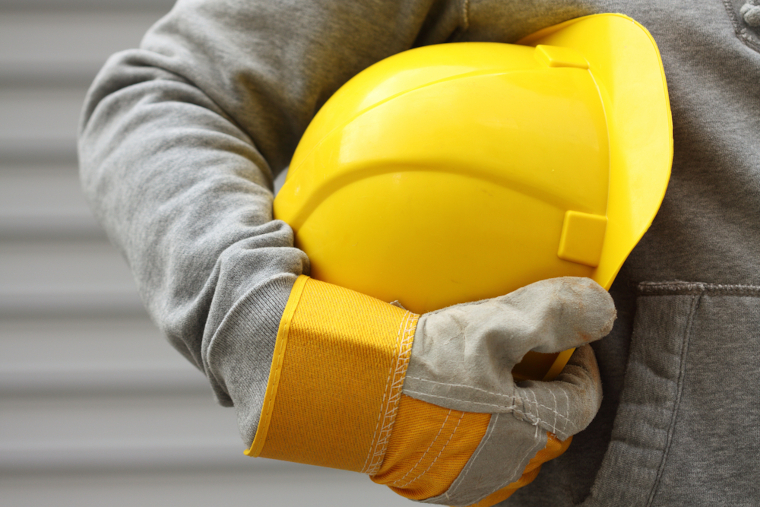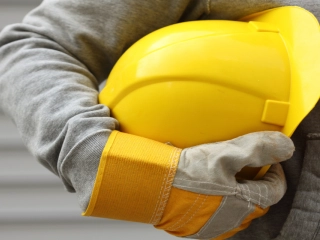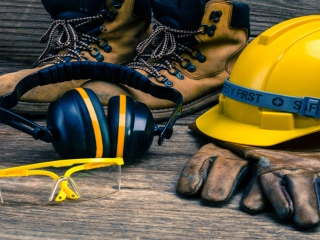CSCS Green Card: online course exam/package
Need to get a CSCS Green Card, also called a Labourers Card? The quicker, easier alternative to one-day courses. Study where and when you want! Includes online training, official lifetime Highfield qualification and CITB operatives test.

CSCS Green Card: online course exam/package
£150.00
+VAT
Choose optional extras?
- Earn discounts
- Receive reminders
- Keep training records
- Track progress

Subtitles: English, Polish, Romanian, Ukrainian, Arabic
CSCS Compliant Qualification
PayPal Buyer protection
Highfield Qualification
Mobile device friendly content
Duration: Self-paced study
Retakes: Rebooking allowed
Overview
This course combines The Digital College courses "Level One Award in Health and Safety in a Construction Environment" and "Preparation for the CITB health, safety and environment test" to enable you to attain a CSCS "Green Card" as quickly as possible. Nothing extra to pay; all training and exam costs included! You just pay for the card.
This package includes everything you need to train for and request a CSCS card.
- Qualification: Level One Award in Health and Safety in a Construction Environment (valid for your lifetime)
- Preparation for the CITB health, safety and environment test, including a mock test
- Booking of Level 1 Qualification examination (online or in a locally convenient approved exam location)
- Booking of CITB test (at a CITB test centre)
You just speak to CITB to order your card - or we can order it for you.
How does the online training and exam work?
- Our online training is provided through video with short progress exams. Subtitles in English, Polish, Romanian and Ukrainian are available for the videos. A full preparation exam is included with the training so you will be ready for the exam.
- The online multiple choice exam can be taken on a laptop with a camera in a suitably quiet location. Your activity on the screen and via the webcam is recorded during the whole assessment.
- The Level 1 qualification exam is only delivered in English.
- The CITB test is available with a voiceover in the following languages upon request: English, Welsh, German, Lithuanian, Polish, Portuguese, Punjabi, Romanian, Russian, Bulgarian, Czech, Hungarian, French, Spanish
Don't want an online exam? Here are our local test centres
Here are the test centres available across our network. No other provider has as much choice! Centres either offer a flexible choice of dates and time or pre-scheduled calendar of tests.
Don't see a test centre nearby? Call us and ask us about online testing!
| Flexible times: |
Aberdeen, Birmingham, Brighton, Bristol, Bromley, Cardiff, Edinburgh, Edgware, Enfield, Glasgow, Guildford, Halifax, Hendon, Hounslow, Leeds, Leicester, Liverpool, Manchester, Middlesbrough, Newcastle, Northampton,Nottingham, Portsmouth, Reading, Sheffield, Southampton, Southend, Stratford, Taunton, Warrington, Watford |
Note: CSCS will be responsible for supplying your card once the application has been submitted. We cannot offer any guarantees for the time to receive a card once ordered from CSCS.
The Level 1 Award Health and Safety Course for CSCS Green Card is also available as a standalone course
Course Syllabus
-
Course Introduction
How the course will work - the flow from the Level One Award "Health and safety in a construction environment", through the CITB Health, Safety and Environment Test, to receiving your CSCS "Green Card".
-
Introduction to the learning element of the Level One Qualification "Health and Safety in a Construction Environment"
Here we describe the purpose, range and structure of the Level 1 Health and Safety in a Construction Environment qualification part of the combined course.
-
A1 - The Importance of Health and Safety
This first unit covers the importance of health and safety.
-
A2 - The Reasons for Good Health and Safety
This section outlines the reasons for good health and safety.
-
A3 - Legal Responsibilities for Health and Safety
In this final unit of Module A, we examine the legislation that underpins health and safety, as well as the responsibilities of employers and employees. It also explains how the end of module tests work on this course.
-
B1 - Key Terms used in Health and Safety
We kick off Module B with a look at key terms that are used in health and safety, which will stand you in good stead for the rest of the course and beyond.
-
B2 - Risk Assessments and Method Statements
In this section, we introduce you to risk assessments and method statements, along with the 5 steps to risk assessment process.
-
B3 - Working at Height
B3 covers different methods of working at height and the safety precautions that need to be adhered to for each of them
-
B4 - Manual Handling
In this section, we define the term "manual handling" and go on to discuss best practice in assessing the risk attached to manual handling operations and how to manually handle items safely.
-
B5 - Noise and Vibration
In the final unit of Module B, we look at the hazards that can be created by excessive noise and vibration and what control measures can be put in place to ensure a good level of health and safety.
-
C1 - Fatalities, Injuries and Ill-health in construction
To begin our third module, we look at the main causes of fatalities, major injuries and ill-health in construction.
-
C2 - Slips and Trips
This section covers the type of accidents and injuries that are most common in the work place - slips and trips.
-
C3 - Moving Vehicles and Mobile Plant
This unit covers site traffic and control measures to ensure good levels of health and safety.
-
C4 - Work Equipment
To finish off this module, C4 covers types of work equipment and methods for their safe use.
-
D1 - Fire
D1 covers fire hazards and precautions.
-
D2 - Electricity
This section covers the hazards and dangers associated with electricity and discusses what control measures can be put in place to ensure good levels of health and safety.
-
E1 - Hazardous Substances
E1 looks at what we mean by hazardous substances, the legal requirements around the handling and storage of hazardous substances, and control measures to ensure a good level of health and safety.
-
E2 - Asbestos
E2 takes a deeper dive on the hazardous substance of asbestos, including its common uses, the different types, and appropriate PPE to wear when working with asbestos.
-
E3 - Classifications and Labels of Hazardous Substances
Use this unit to learn about how hazardous substances are put into similar groups (or classifications) and the labels that are used to highlight them.
-
F1 - Alcohol and Drugs
F1 looks at the possible adverse effects of alcohol and drugs in the workplace.
-
F2 - Health and Safety Signs; F3 - Personal Protective Equipment; F4 - Welfare Facilities & Personal Hygiene
In these sections, we cover health and safety signs, personal protective equipment (PPE), welfare facilities and personal hygiene respectively.
-
F5 - Emergencies & First Aid; F6 - Reporting Accidents & Ill-Health
F5 covers procedures for dealing with emergencies and the requirement to provide adequate first aid facilities. F6 looks at the importance of accurately recording all accidents and incidents of ill-health, including legal requirements to report certain accidents and types of ill-health that originate in the workplace.
-
Revision 1 - Health & Safety
In this first unit, we explain how the revision module works and revise what health and safety is, the differences between "health" and "safety", the 2 main Acts of legislation that underpin health and safety law, and employers' and employees' responsibilities under these Acts.
-
Revision 2 - Definitions and Hazard Types
This section recaps definitions of key terms throughout the course, the 5 types of hazards, the 5 steps to risk assessment, and the hierarchy of controls for working at height.
-
Revision 3 - Manual Handling, Noise and Vibration
In this section, we revisit typical injuries of manual handling, noise and vibration, as well as the correct lifting technique and control measures for noise.
-
Revision 4 - Injuries and Moving Vehicles
This unit revises the main causes of fatalities and major injuries, the most common ill-health problems, the hazards of moving vehicles, work equipment and machinery, and the control measures for moving vehicles.
-
Revision 5 - Fire and Electricity
This unit re-examines the hazards of fire and electricity.
-
Revision 6 - Asbestos and Hazardous Substances
Here, we recap the world of asbestos and hazardous substances.
-
Revision 7 - Alcohol, Health and Safety Signs, and PPE
Unit 7 focuses on the effects of alcohol and drugs misuse, the 4 colours used for health and safety signs, and different types of personal protective equipment.
-
Revision 8 - Personal Hygiene and Reporting Incidents
In the final content revision unit, we re-examine best practices for personal hygiene, why it's important to report incidents, and the types of incidents that must be reported to the HSE.
-
Revision 9 - Exam Format
Here, we talk you through how your Level 1 exam will look, as well as offer some exam tips.
-
Revision 10 - Exam Equipment
If you decide to take your exam online, there are certain equipment requirements. We explain what those requirements are in this unit, along with what happens when you submit your exam booking to us.
-
Introduction
Introduction to the course, including why the qualification is required and how the course is structured
-
Module A: Legal and management
Legal and management aspects of health and safety in a construction environment
-
Module B (1): Health and welfare
This is the largest of the modules in this course and is split into three sections - (1), (2) and (3). This is Module B (1)
-
Module B (2): Health and welfare
Continuation of Module B
-
Module B (3): Health and welfare
Continuation of Module B.
-
Module C: General safety
This module covers subjects and issues relating to general safety within a construction environment
-
Module D: High risk activities
This module explores construction activities that are classified as high risk
-
Module E: Environment
This module covers aspects of construction work that can impact in a negative way on the environment and people within it
-
Revision
This sections provides a brief revision of the mainpoints of the course and goes on to describe the next steps to book the CITB Health, safety and environment test and ultimately attain a CSCS Operator-level card ("Green Card")
Obtaining your certificate
You will need to pass a multiple-choice exam after you have completed the course in order to gain the official qualification. But don’t worry – we will ensure that you are well prepared with our revision module and mock exam.
Popular Courses

Overview
This course combines The Digital College courses "Level One Award in Health and Safety in a Construction Environment" and "Preparation for the CITB health, safety and environment test" to enable you to attain a CSCS "Green Card" as quickly as possible. Nothing extra to pay; all training and exam costs included! You just pay for the card.

Overview
This is the official qualification required by local councils for anyone in England and Wales applying for a Personal Licence to serve or sell alcoholic drinks. This delivers the complete training package of online study, practice questions, an invigilated assessment and an official certificate to those that pass this qualification. The certificate can then be supplied to your local council as part of your Personal Licence application.

Overview
This bundle contains everything you need to gain a Personal Licence to authorise the sale of alcoholic drinks in England and Wales. This delivers the complete training package of online study, practice questions, an invigilated assessment and an official certificate to those that pass this qualification. We will then obtain a DBS certificate and apply to your local council on your behalf - saving you a lot of time and effort.

Overview
This Level 1 Award Health and Safety course and test, awarded by Highfield Qualifications and valid for your lifetime, is aimed at learners who currently work, or want to work, in construction. Successful completion will enable you to move on to take the CITB health, safety and environment test, and then apply for the new Construction Skills Certificate Scheme (CSCS) Green Card. This card allows access to construction sites in the UK as a non-skilled worker and is designed to improved overall site safety.

Overview
Our Level 2 Award An Introduction to First Aid for Mental Health qualification will increase your awareness of common mental health issues, such as anxiety, depression and stress, that can have an impact on our everyday lives. You'll also obtain knowledge on how a mental health first aider can provide immediate "on the spot" care to others, while looking after their own mental wellbeing. Upon successful completion of the invigilated assessments, you will receive an official certificate. This qualification incorporates the Level 1 Award An Introduction to Mental Health and Wellbeing qualification.

Overview
Our Level 2 Food Hygiene certificate course covers food hygiene, food hazards, food poisoning, how food becomes unsafe, personal hygiene, awareness of contamination, time and temperature factors, proper cleaning and sanitising, premises and equipment and food handling responsibilities. This is perfect for anyone preparing or handling food.
CSCS Green Card: online course exam/package
Need to get a CSCS Green Card, also called a Labourers Card? The quicker, easier alternative to one-day courses. Study where and when you want! Includes online training, official lifetime Highfield qualification and CITB operatives test.£150.00
+VAT







